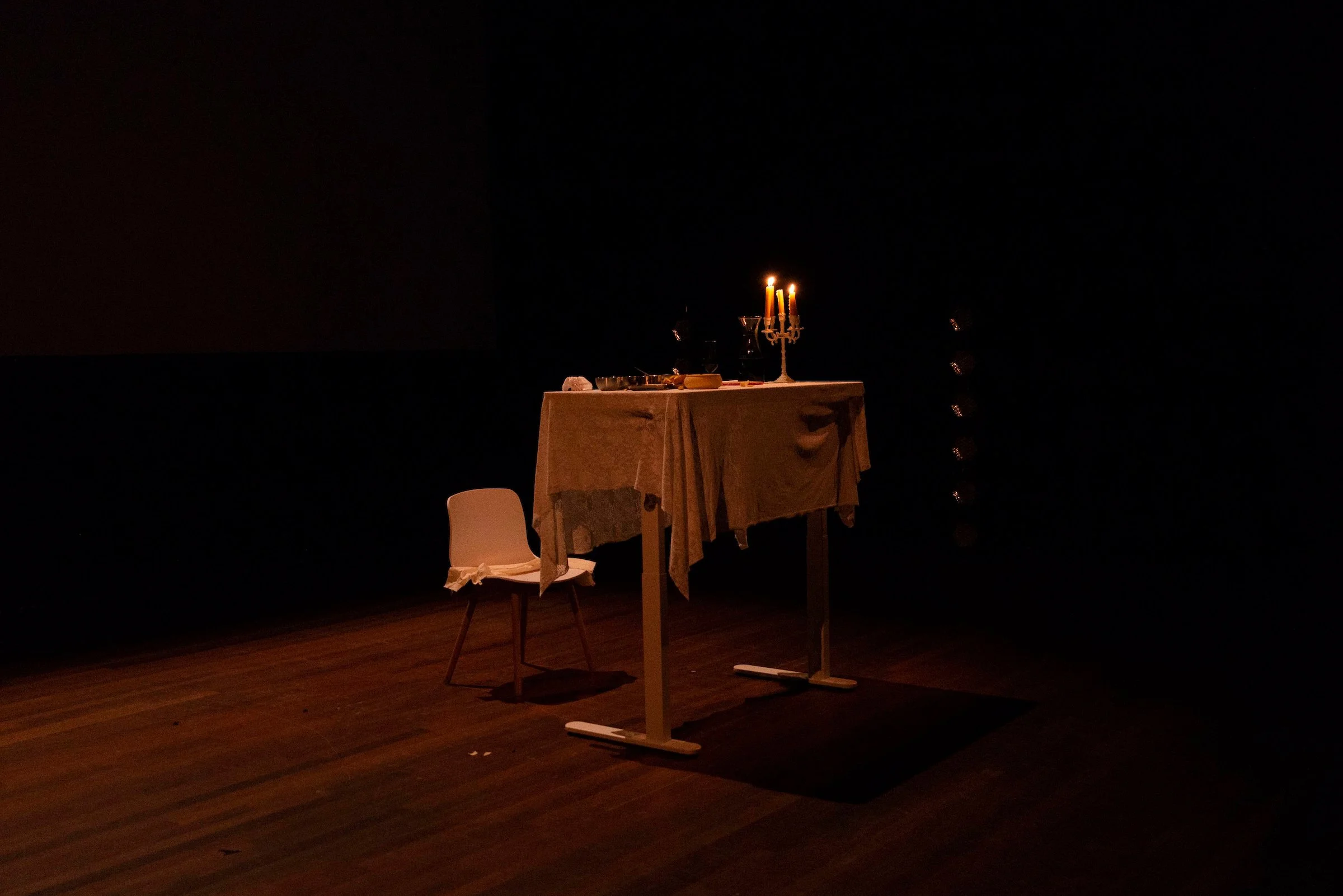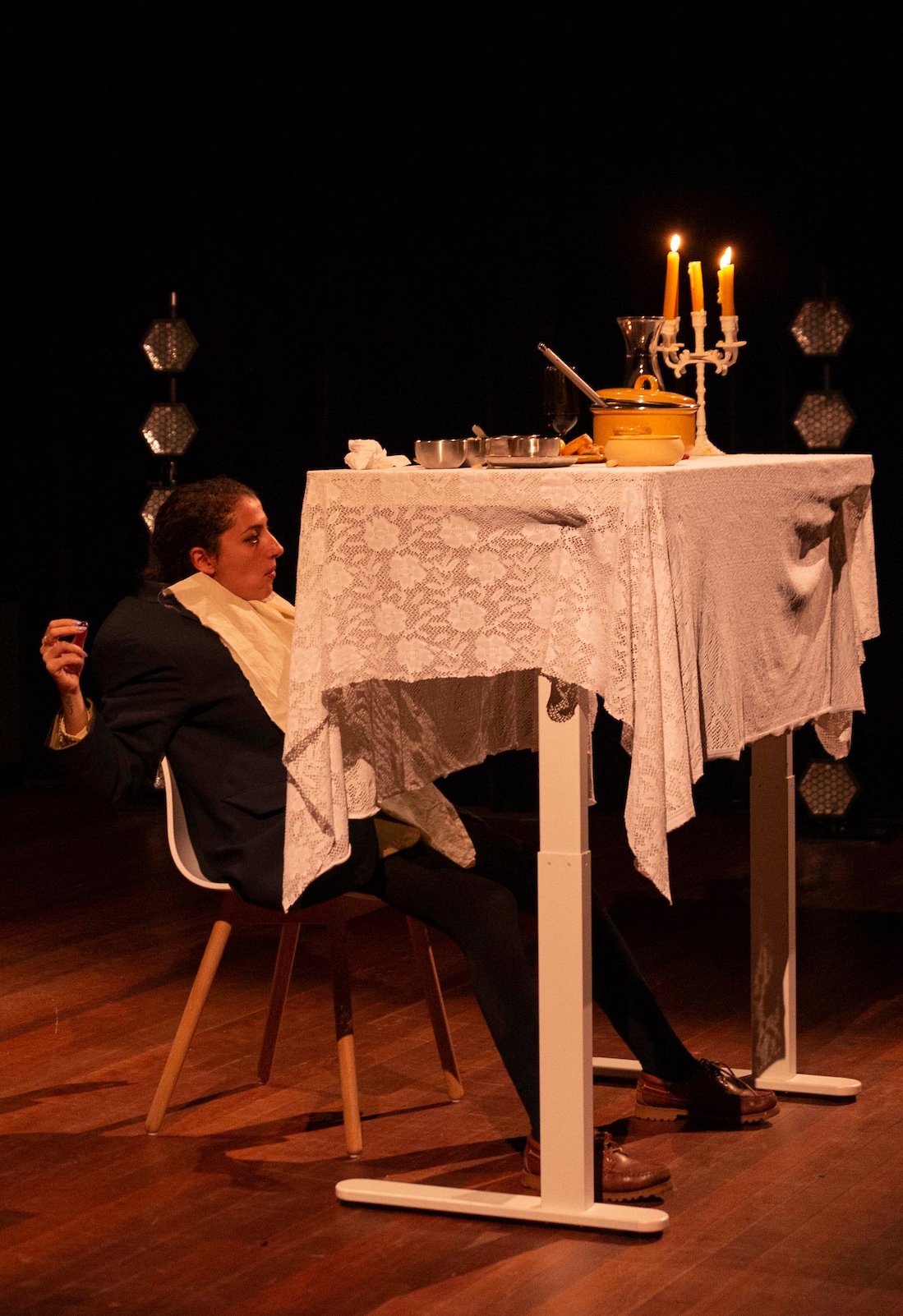Performances
HOLDING PALESTINE | 7 DAYS PERFORMANCE | 2021
In May 2021, students of the Piet Zwart Institute – which operates under WDKA and Hogeschool Rotterdam – were confronted with silencing and censorship after hanging a banner in solidarity with Palestine. The banner, initiated by students including Christian Ovesen, Emma Astner, and Diana Al-Halabi, was removed by Hogeschool Rotterdam’s security guards.
Students mobilized to take further action against the school’s so-called “neutral stance.” Among these actions were:
A statement denouncing both the censorship of freedom of speech and the institution’s neutrality on Palestine, which also announced the students’ decision to rehang the banner.
A protest march beginning at Erasmus University, passing WDKA, and ending at Piet Zwart Institute.
An Alternative Working Assembly, collaboratively organized with several WDKA tutors, countering the closed-door meeting the school had arranged to discuss the events.
Other individual actions also emerged: radio broadcasts, Palestinian flags hung from studio windows, and more.
The school’s policing escalated to the point that security guards patrolled the campus building on an hourly basis. After weeks of confrontations, students such as Christian Ovesen and Emma Astner chose to use the watermelon—a symbol of the Palestinian flag—to create another banner. This too was removed within an hour, on the grounds that “nothing was allowed to hang from the building.”
In response to this reasoning, I initiated the performance Holding Palestine. Over seven days, artists, tutors, and supporters held the banner in rotation: every two participants stood for an hour, 10 hours a day. Readings, broadcasts, discussions, and podcasts unfolded organically on the stairs during this time.
For documentation of this performance and the events of May 2021, visit the Instagram account.
THE LAST SUPPER OR A CLASS IN HISTORY | PERFORMANCE | 13’ | 2021
A performance responding to the Palestinian artist Jumana Manna's film Wild Relatives, which unfolds a matrix of plant lives, peasants' lives, and seed banks. Following a trip of seeds from Aleppo to the Svalbard Global Seed Vault, back to Lebanon, and finally back to the Arctic.
"The Last Supper or a Class In History" performance was part of the program "To Carry The Sun" curated by Narges Mohammadi for IDFA Film Festival | 2021
Sir Minster, what do you prefer us to call you? Sir? or Minster? Or your Highness?
Since the last time you visited, nothing has changed in this house, except, this time we are more prepared for your visit. I saved a seed from each envelope to feed you. I raised the table from the ground to fit your highness.
Sir Minister, last time you visited, we realized that the ceiling was too low and the door was too narrow. They speak of the elephant in the room when something isn't being said. But, sir Minister, you looked like that elephant in the room last time you visited. But don't worry, sir Minister, we demolished the ceiling, and now your limit is your highness.
[...]
As we have always been late for history, we are curious, Sir Minister, how did you manage to communicate with the future? If what Orwell said was true, then it is of its nature, impossible to do so. He said either the future resembles the present, in which case it won’t listen to you, or it would be different from it, and your predicament would be meaningless.
To communicate to the future, sir minister is to come back to us with a self-fulfilling prophecy, but on such a day like this one, a self-fulfilling prophecy could be a class-fulfilling one. Because, as far as I know, doomsday in Old English meant the day-dag of the judgment, where a law, decision, a sentence is made. And, here, allow me your Highness to ask you a question that holds the answer in it, who usually passes laws, takes decisions, and issue sentences? The one who sowed or the one who harvested, or the one who accumulated?
Written by Diana Al-Halabi, performed by Lama Aloul (the ruling Peasant) and Diana Al-Halabi (Sir Minister), music by Samah Boulmouna
Photos by: Sophia Maria Favela
HUNGRY HUNGRY POLITICIANS | INTERACTIVE PERFORMANCE | FRAMER FRAMED | 2022
Hungry, Hungry Politicians
The balls in the children’s game Hungry Hungry Hippos are not only food, but also capital. The hungry hippos do not eat the food; they only transfer it to the account of the player.
Based on this game, food is not a moment of sharing in a community, but a competitive moment of hoarding. Therefore, the question is: Who is the player? What role does hunger play in such a call for feeding? And how can a call to feed the hungry become about accumulating the food intended for them?
Through this work, people are invited to reflect on how this “innocent” children’s game mimics the realities of philanthropy, NGO politics, hoarding, accumulation, and monopolies during famines, economic crises, and mass starvation.
In this interactive performance, each time a player wins, they are rewarded with a file containing a text about an incident in the history of famine, which they must read aloud to the public.








